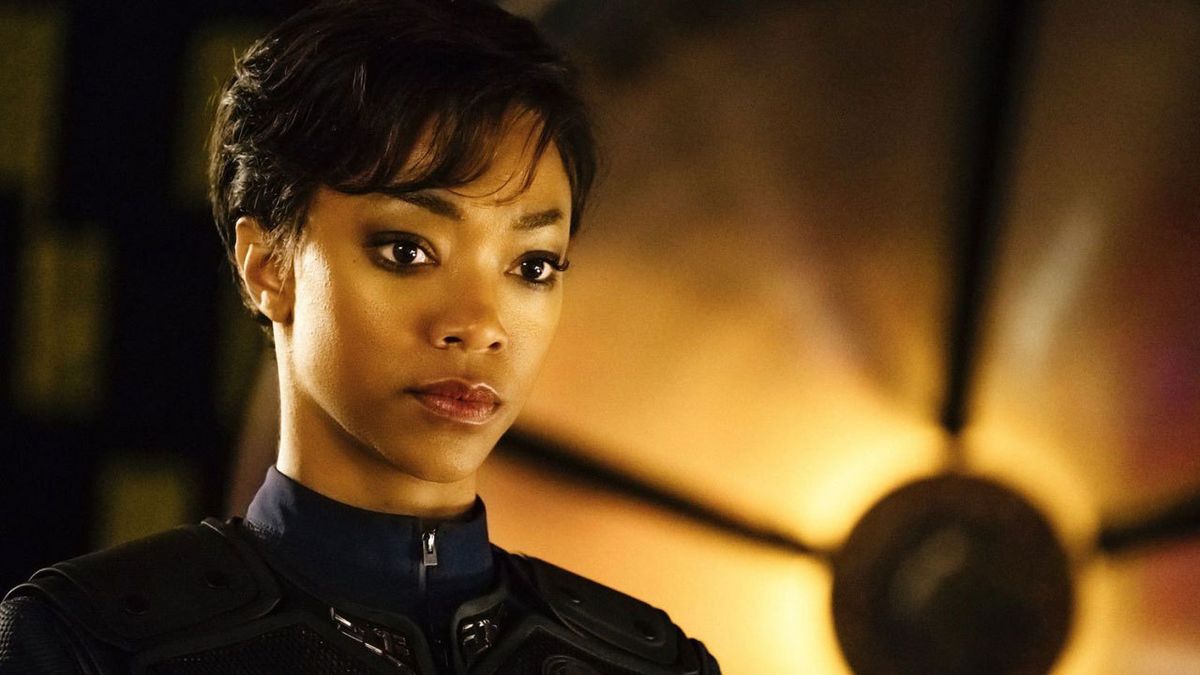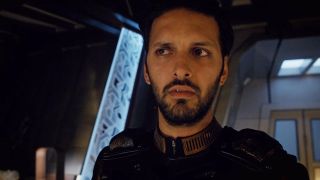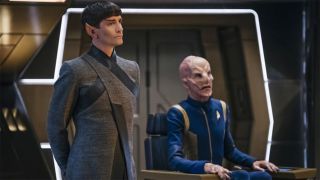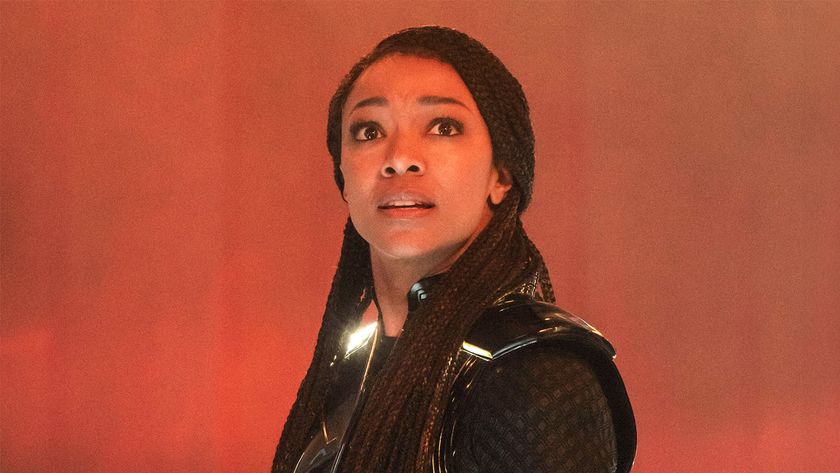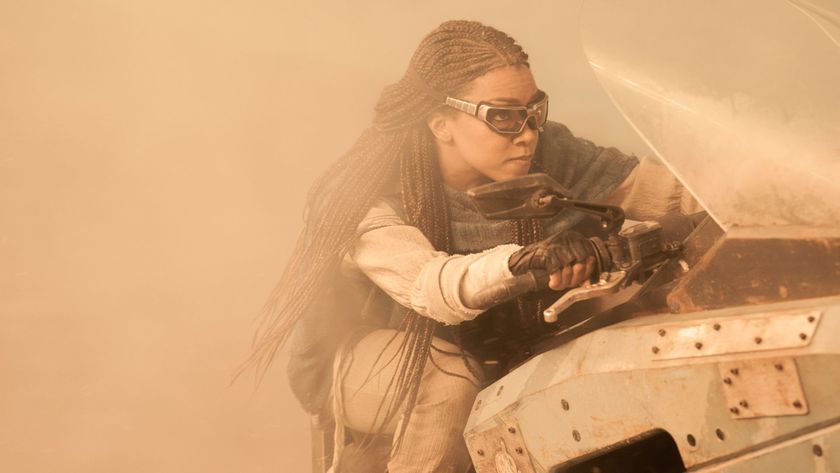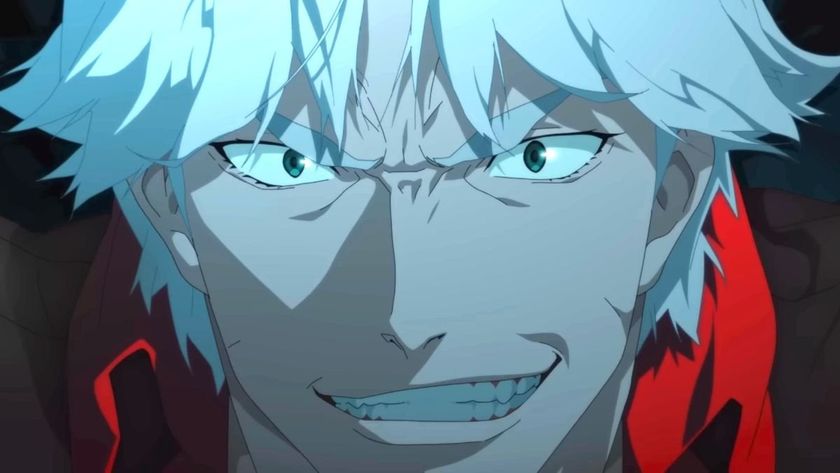12DOVE Verdict
While hardcore Trekkies will struggle to love it, and plot holes abound towards the end, Discovery is the Star Trek we need right now.
Why you can trust 12DOVE
In recent years we’ve come to expect almost everything we’ve ever loved being rebooted in some form or another. So the announcement that a new Star Trek series was being developed way back in 2015 wasn't that shocking. It had been a decade since Enterprise had finished and the (then) upcoming 50th anniversary of the show had everyone thinking it was maybe time to boldly go again. Years (and many delays) later, Star Trek Discovery warped onto our screens in September 2017 with a fresh outlook on the future which was almost unrecognisable but, after 15 episodes with the USS Discovery and it’s crew, it’s clear that there’s a place for a darker Trek in our viewing schedules. While it’s not without its flaws, and hardcore Trekkies continue to struggle with how different it is from the original, Discovery proves that it’s possible to merge a beloved sci-fi classic with everything that works about modern television.
No sooner had the series premiered than the proclamation ‘This is not Star Trek!’ echoed around the internet. And so started a fan war of disagreements, which was perhaps only surpassed by the whole Star Wars: The Last Jedi ‘debate’ at the end of last year. The truth is that Discovery is just a very different Trek series to past iterations, and if you’re looking for more of the Original Series or The Next Generation... well, you’re better off rewatching those series than giving Discovery a go because you won’t find many monster-of-the-week or space anomaly style adventures here. However, if you’re open to the idea of the franchise changing for a completely new era of television, and perhaps even - shock, horror - introducing a new audience to the world of the Federation, then Discovery fills that role perfectly. While hardcore Trekkies may never see the value of the series (and that’s fine - we don’t all have to like the same thing), Discovery found its audience mostly in people who had never watched a Star Trek TV show before in their lives. With its darker version of the future and lack of traditional space exploration hijinks, Discovery is the Trek series we need in this day and age, and it’s brought a beloved, yet outdated, series into the present golden age of television.
Unlike previous Treks, the action centres on First Officer Michael Burnham (although she doesn’t remain First Officer for long) who, while human, was raised Vulcan by Spock’s parents. Through her misguided logic she inadvertently starts a war with the Klingons who aren’t yet the united Empire we know from the Original Series, and so we see the Federation as we’ve never seen it before; not as explorers but as soldiers at war. It’s not hard to see why this doesn’t sit well with some fans, but the television landscape (and the world) has changed a lot since Gene Roddenberry first imagined Star Trek and Discovery works for today’s audience in a way Kirk and co never would. Burnham joins the crew of the Discovery under the leadership of Captain Lorca who is desperate to make a new form of transport work to give the Federation the edge in a war they are clearly losing, all the while Klingons Voq and L’Rell attempt to unite the 24 great Klingon Houses under one rule. From Burnham’s mutiny and the development of the DASH drive, to getting lost in Terran space and Lorca’s true identity, it really is incredible how much is packed into the first season of Discovery and while it can sometimes feel a little over-stuffed (especially towards the end), almost every episode is standout television. Expertly combining the rich and varied world of Star Trek and modern audience’s love of fan theories and twists, Discovery’s plot keeps you glued to the screen from episode-to-episode, despite a few annoying plot holes which crop up from time to time. It also doesn't rely too heavily on its well-known background and although there are plenty of Easter eggs and fan pleasing moments, they remain just that, never creeping too far into the narrative and taking over.
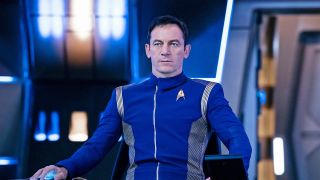
Every member of the cast holds their own, including lead Sonequa Martin-Green (despite the difficulties of her character which I’ll get to in a moment), but there are a handful of performances that really are spectacular. It’s a joy to see actor Doug Jones getting the recognition he deserves after years of playing characters with heavy prosthetics. His role as Saru in Discovery is no different, but the industry is finally sitting up a noticing how much work goes into playing a character like this and his performance as the mild-mannered yet highly intelligent Kelpien is far from the one-dimensional Star Trek aliens of the past. Shazad Latif could be praised simply for playing two characters on the show (Voq and Tyler) and keeping it a secret until the big reveal, but he does so much more than that. Both performances are strong and well-rounded but it’s when they come together and merge as Tyler discovers his true identity that you realise how much work goes into portraying someone with dual personalities. However, it’s Jason Isaacs who steals the show as Gabriel Lorca - a Captain with depth and mystery, and one that plays everyone from the beginning. There is always something a bit off about his character, but it isn’t until his true motivations are revealed that you notice how much Isaacs has subtly been planting the seeds for his arc the whole time.
Houston, we have a problem
Sadly, the main problem with Discovery is that its least interesting and endearing character is also - unfortunately - its main character: Michael Burnham. While most fans were intrigued by the idea that Discovery would be the first Star Trek series whose main character wouldn’t be the Captain of the title ship, the series failed to produce a strong enough substitute. This is mainly down to the fact that Burnham is human, but raised Vulcan which makes for an incredibly tricky character for actress Sonequa Martin-Green to get a handle on. Due to the dispassionate nature of Vulcans, they’re never a viable series lead, and while we may love Spock and the occasional Vulcan-focused episode is a joy, we can’t root for a race which is so emotionally different to our own. It’s as if the showrunners wanted to created a character that services fans without alienating them too much (Vulcan + Human = Burnham), but instead ended up making someone who’s emotionless and boring one moment and reckless and naive the next. In essence, Burnham is just too inconsistent as a lead and the series suffers for it despite its many other compelling characters.
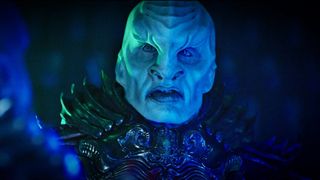
Discovery’s other problem is another issue of inconsistency, this time, in the form of pacing. It’s easy to dismiss or forget how important pacing of a show (or movie) can be, but you sure as hell notice it when it’s off. While Discovery started off at a gentle trot (Burnham didn’t even make it onto the USS Discovery until episode 3 and the long promised Mirror Universe plot made its debut in the mid-season finale), by the time we got to the end of the season, everything had gone a bit Game of Thrones season 6 with characters teleporting all over the place and major deaths getting little reaction time. While teleportation is actually a thing in the Trek universe (unlike Westeros), we still needed more time to adjust to a lot of what happened in the second half, especially when the first half had allowed us to do just that. The showrunners clearly use the first half to set everything up and let us get accustomed to this new Trek, but then there just isn't enough time to do justice to everything they’d promised in the second half. Lorca only gets to be the baddie/true Terran for one full episode before being killed off, the Tyler/Voq storyline still doesn’t feel like it ever got it’s well-deserved payoff, and even minor characters - such as Mudd, who made some of the best moments from the beginning of the series - were never heard of again. After putting in so much time and effort to set up some truly compelling plot points, fan theories, and interesting twists, it’s disappointing that ultimately most of them don't get the screen time they deserve.
No doubt, Discovery redefines what Star Trek is for a new audience, and not everyone is going to like that. The good news is that if you love the traditional Star Trek of yesteryear, there’s still plenty of that for you to rewatch and enjoy, but if you want a new science fiction show which is a bit more gritty, amps up the action, and actually gives the Federation something to complain about, Discovery pretty much nails it. While it probably shouldn't have made it’s main character Vulcan-like, and could have benefitted from a bit more breathing room for some of its storylines, the series stands out in an age of exceptional television to become one of the best shows of recent times. This is a Star Trek series which knows its past, but isn’t beholden to it… basically, a near perfect reboot then.
Lauren O'Callaghan is the former Entertainment Editor of 12DOVE. You'd typically find Lauren writing features and reviews about the latest and greatest in pop culture and entertainment, and assisting the teams at Total Film and SFX to bring their excellent content onto 12DOVE. Lauren is now the digital marketing manager at the National Trust.
